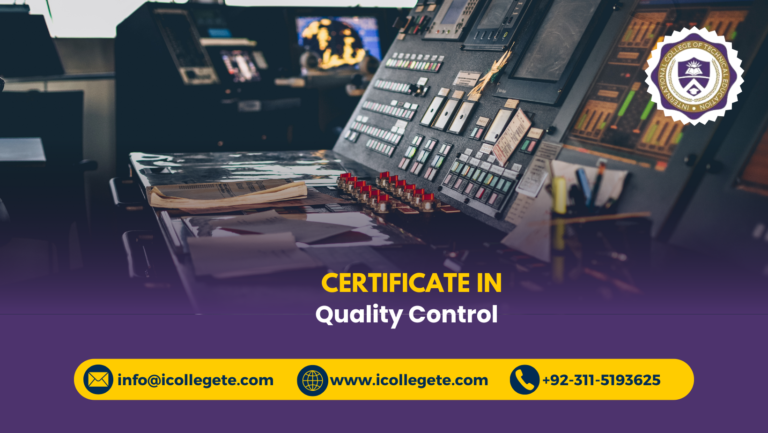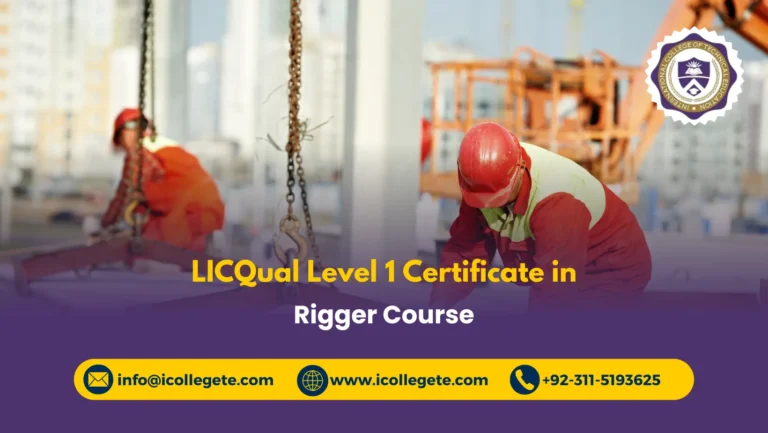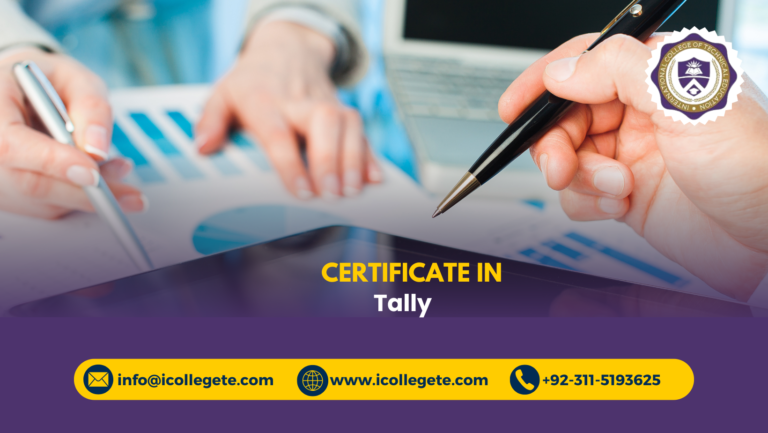The travel and tourism industry is one of the fastest-growing sectors in the world, providing significant employment opportunities across various roles and sectors. As travel becomes more accessible and global tourism continues to rise, the need for skilled professionals who can manage and lead in this dynamic industry has never been greater. For those interested in pursuing a career in this thriving field, the Travel and Tourism Management course in Islamabad offers a comprehensive education, equipping students with the essential skills and knowledge to succeed.
The Travel and Tourism Management course in Islamabad is designed to provide students with the necessary skills and knowledge to excel in the global tourism industry. This course covers a range of essential topics, including tourism operations, marketing, customer service, and sustainable tourism practices, allowing students to gain a holistic understanding of how the tourism industry functions on both a national and global scale.
With a focus on practical training and industry-relevant skills, the course prepares students to manage travel agencies, tour operators, hotels, event planning businesses, and other organizations within the tourism sector. Graduates will be ready to take on leadership roles within the industry, with a strong foundation in both the operational and strategic aspects of tourism management.
The Travel and Tourism Management course offers a comprehensive curriculum that integrates both theory and practical learning. Students will develop a deep understanding of tourism and hospitality operations, including customer relationship management, destination management, tourism marketing, and the economics of tourism.
The course also emphasizes the importance of sustainable tourism and how tourism businesses can adopt environmentally and socially responsible practices. Students will have the opportunity to engage with real-world case studies, participate in internships, and attend workshops or guest lectures by industry professionals.
The course typically spans several months, with flexible learning options that may include both full-time and part-time study plans to accommodate different schedules.
Study Units
The Travel and Tourism Management course is structured into various study units, which are designed to cover the key components of tourism management. The core study units include:
- Introduction to the Travel and Tourism Industry: An overview of the global travel and tourism sector, including the different segments (e.g., leisure, business, adventure, and eco-tourism) and key players such as airlines, travel agencies, hotels, and government tourism boards.
- Tourism Marketing: This unit focuses on the strategies and tactics used to promote travel destinations, tourism products, and services. It includes digital marketing, social media strategies, and customer segmentation techniques.
- Customer Service in Tourism: Emphasizing the importance of exceptional customer service in the tourism industry, students will learn how to manage customer expectations, resolve complaints, and deliver memorable experiences for tourists.
- Destination Management: This unit provides insights into how tourist destinations are developed and managed. Topics include attraction management, infrastructure development, and the role of local governments in tourism planning.
- Tourism Economics: A deeper look at the economic impact of tourism, including how supply and demand influence prices, the role of tourism in local economies, and the financial management of tourism-related businesses.
- Sustainable Tourism: Understanding the need for sustainability in tourism, this unit covers eco-tourism, responsible travel, and how tourism businesses can operate in an environmentally and socially conscious manner.
- Tourism Operations and Logistics: Focusing on the operational aspects of running a tourism business, this unit covers transportation logistics, travel coordination, accommodation management, and tour operations.
- Tourism Policy and Planning: This unit explores the role of government and private sector policies in shaping the tourism industry, including regulations, safety standards, and tourism promotion efforts.
- Event Management in Tourism: Students will learn how to plan, organize, and execute large-scale events such as conferences, festivals, and sporting events that attract tourists and contribute to the local economy.
Learning Outcomes
Upon completion of the Travel and Tourism Management course, students will be able to:
- Understand the structure and functions of the global travel and tourism industry, including key players and market dynamics.
- Develop and implement marketing strategies for tourism products and destinations.
- Apply customer service techniques to enhance the travel experience for customers.
- Manage tourism destinations, attractions, and accommodations effectively to meet the needs of tourists.
- Evaluate the economic impact of tourism on local and national economies, and apply financial management principles to tourism businesses.
- Implement sustainable tourism practices that balance environmental, social, and economic factors.
- Manage the logistics of travel and tourism operations, including coordinating transportation, accommodation, and other services.
- Design and execute large-scale events that promote tourism and attract visitors to specific destinations.
- Critically analyze tourism policies and regulations and understand their impact on the tourism sector.
Course Benefits
- Industry-Recognized Qualification: The Travel and Tourism Management course is widely respected within the industry, providing students with a globally recognized qualification that enhances their employability in the tourism sector.
- Practical Knowledge: The course combines theoretical learning with practical skills that can be directly applied in the tourism industry. Students will gain hands-on experience through internships, case studies, and interactions with industry professionals.
- Global Opportunities: The tourism industry is global, and this course provides students with a broad understanding of international tourism practices, enabling them to pursue career opportunities anywhere in the world.
- Focus on Sustainability: With the increasing importance of sustainable practices in the tourism sector, the course emphasizes eco-friendly and responsible tourism, preparing students to work in a growing sector that prioritizes sustainability.
- Diverse Career Paths: The course prepares students for a wide range of career opportunities in various tourism sectors, including travel agencies, event management, hotel management, tour operations, and government tourism boards.
- Networking Opportunities: Students will have the chance to connect with industry professionals through workshops, seminars, and internships, potentially leading to job placements or collaborations.
Who Is This Course For?
The Travel and Tourism Management course is ideal for:
- Aspiring Tourism Managers: Individuals who wish to pursue a leadership role in the travel and tourism industry, whether in travel agencies, tour operators, or hospitality businesses.
- Hospitality Professionals: Those already working in hotels, resorts, or related fields who wish to transition into tourism management or advance their careers.
- Event Planners: Individuals interested in managing large-scale events and festivals, which play an important role in the tourism sector.
- Entrepreneurs: Those interested in starting their own travel agency, tour operation business, or tourism-related venture.
- Graduates from Related Fields: Individuals with backgrounds in business, marketing, or management who want to specialize in tourism and expand their career prospects in this growing industry.
Future Progression
Completing the Travel and Tourism Management course opens several opportunities for further growth and career advancement:
- Advanced Certifications: Graduates can pursue advanced certifications in specific areas such as event management, tourism marketing, or sustainable tourism to enhance their expertise and employability.
- Management Roles: With experience, graduates can progress to higher-level management positions, such as tourism director, marketing manager, or operations manager, in various sectors within the tourism industry.
- Specialization in Sustainable Tourism: As sustainability continues to be a major trend in the tourism industry, graduates may choose to specialize in eco-tourism or sustainable tourism management, leading to roles in policy development or consulting.
- Entrepreneurship: Graduates may decide to open their own travel agency, tour operation business, or hospitality service, capitalizing on the skills and knowledge gained during the course.
- International Opportunities: With the global nature of the tourism industry, graduates can work with international tourism organizations, travel agencies, or hotels, or even work abroad to gain global experience.
the Travel and Tourism Management course in Islamabad offers an excellent foundation for anyone looking to build a successful career in the vibrant and expanding tourism sector. With its broad curriculum, emphasis on practical experience, and focus on sustainability, this course provides students with the knowledge and skills needed to thrive in the travel and tourism industry. Whether you are just starting your career or seeking to advance your professional journey, this course offers a pathway to a rewarding future in one of the world’s most dynamic industries.






